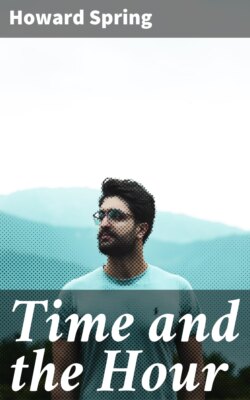Читать книгу Time and the Hour - Howard Spring - Страница 20
На сайте Литреса книга снята с продажи.
3
ОглавлениеTable of Contents
Emily Freilinghausen did not share this view. She was enchanted by what was happening. She had a happy capacity for enchanting and being enchanted. “You are a child,” her husband would say. “You ought to read nothing but Hans Andersen.” She was in her middle thirties, but he was right: there were times when she looked a child. He would pull her on to his knees and loosen her hair so that it fell about her pert little face and caped her shoulders. Her greenish-grey eyes would peep at him through the auburn mesh like a winsome young animal’s. “You are completely useless to me,” he would say. “You are a dreadful spendthrift. You can’t sew on a button. You’re a wasteful housekeeper. You are for ever taking my mind off my work. And God help me if you ever left me.”
The very earnestness with which he would say such things made her laugh. He never seized her with a lover’s rapture, never groaned with unspeakable words. He would try to say everything clearly and logically. But she loved him, and he knew it. His strong surgeon’s hands had with her an extraordinary gentleness. She tried never to think of his work. It could make her shudder to picture Ferdinand cutting his way through the intricacies of a human body as clearly and logically as he would carve the joint or the game at dinner.
His grandfather, Hans Freilinghausen, had come penniless to England, and died rich, one of the founders of the great wool firm of Freilinghausen and Zwemmer whose enormous warehouses were in the maze of small streets between the Midland and Great Northern stations. His father, Gustav Freilinghausen, tall, thin and bearded, now presided in those gloomy forts, driving in daily behind a pair of horses from a mansion at Cottingley. The ceremonial Christmas dinner there, which happened also to celebrate Gustav’s birthday, daunted even Emily’s young gaiety. Old Gustav and his wife Emma, looking every inch the matriarch of a tribe; Ferdinand’s brothers Jacob and Joseph, with their wives, who had both come from Hamburg, and their plentiful children; Ferdinand’s two unmarried sisters: all these, sitting round a vast candle-lighted table, with a portrait of Hans, the founder, peering through the encircling gloom, gave Emily a feeling of tribal solidarity with which she could never establish a link. No one there failed to give her the courtesy due to the wife of Ferdinand, the only son who had broken away from the family trade. They were all proud of Ferdinand, who had once been called into a consultation of doctors at Buckingham Palace, proud, too, that he never surrendered to metropolitan enticements but remained in Bradford doing much of his work for nothing among the poor. Even his taking of English nationality had not been frowned on. Indeed, Jacob and Joseph had followed this example. But as Emily sat at the table and listened to the incomprehensible German conversation and to the solemn singing of Stille Nacht, she felt a thousand miles away and longed for the moment when clicked heels and stiff bows would announce the end of the occasion and she and Ferdinand would be snug in her father-in-law’s carriage driving back along the midnight road to Ackroyd Park. His large, warm, gentle hand would seek hers beneath the rug, his head would go down on to her shoulder, and she would know that he, like her, felt released from bondage into the only company that was the final and irreplaceable necessity.
